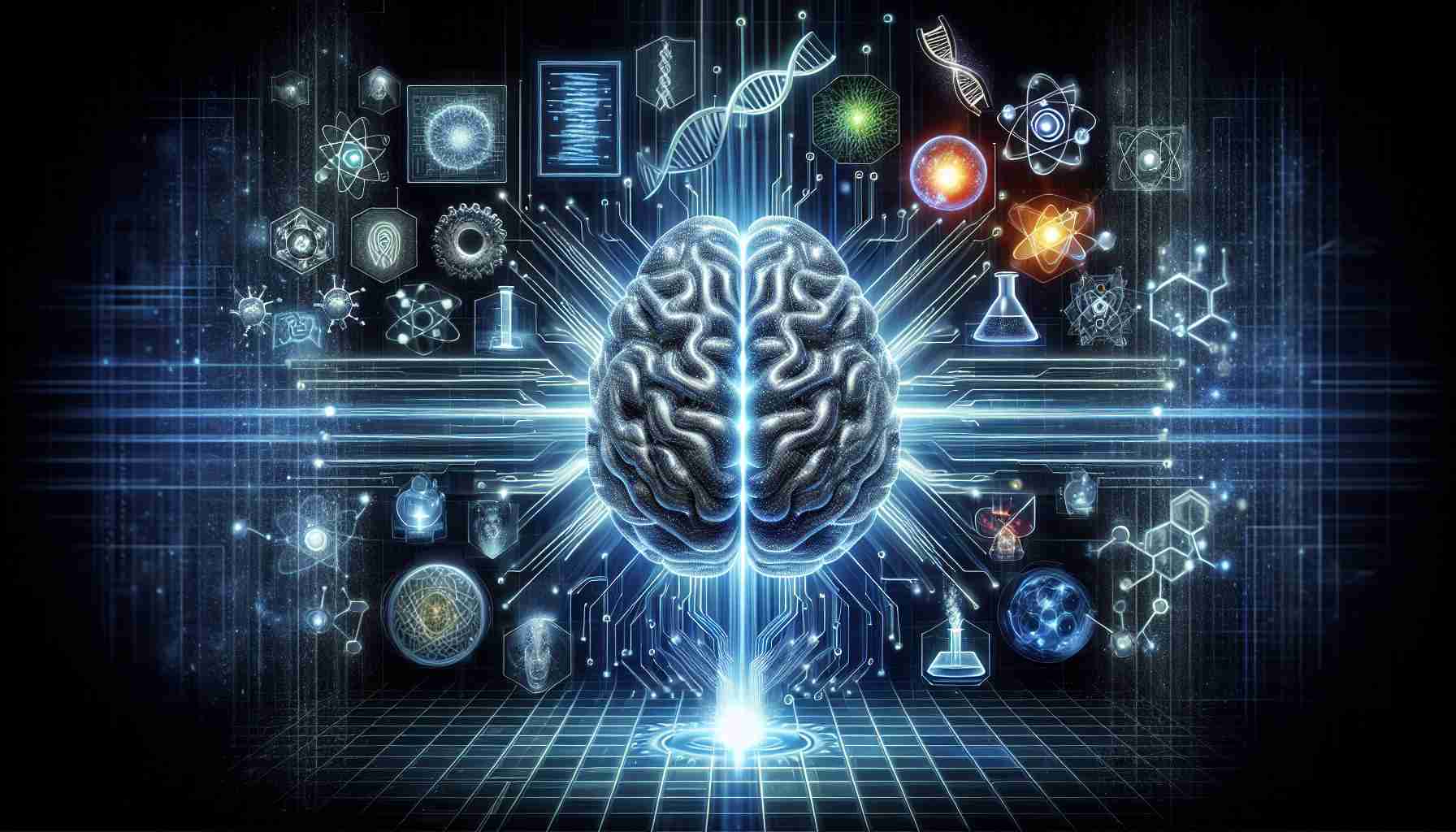Artificial intelligence (AI) is transforming the way we solve complex problems in science, medicine, and technology. Through techniques like machine learning, AI enables computers to imitate the human brain’s ability to learn and analyze massive amounts of data at incredible speeds. Facilities like the renowned Argonne National Laboratory have been at the forefront of this revolution, leveraging AI to predict complex system behaviors, enhance material selection, and address global challenges such as disease control and climate change.
What is Artificial Intelligence?
Artificial intelligence refers to a set of computer technologies and techniques that emulate the learning capabilities of the human brain. It enables computers to recognize patterns, solve intricate problems, and adapt to changing processes more rapidly than humans can.
But AI’s impact goes well beyond technology and computers; it has the potential to revolutionize various fields of study. Researchers rely on AI to delve into some of the most perplexing scientific challenges in search of innovative solutions. Whether it involves understanding how COVID-19 affects the human body or developing strategies to manage traffic congestion, AI helps scientists unlock new insights and drive advancements.
AI Techniques and Their Applications
Machine learning, a key AI technique, plays a crucial role in Argonne’s pursuit of scientific breakthroughs. By continuously learning from vast amounts of data, machine learning models become smarter and more accurate over time. This technique proves invaluable in identifying specific objects within complex images. For instance, a machine learning model trained on numerous cat and dog images can distinguish between the two animals even when they appear in mixed pictures.
Researchers can apply similar machine learning models to analyze object-packed images received from space telescopes. This allows them to differentiate between different types of galaxies and gain a deeper understanding of the universe. Machine learning, however, represents just one facet of AI’s capabilities. Various other techniques contribute to faster and more accurate learning, aiding in critical areas such as materials science and medicine.
Impacts of AI in Scientific Research
Argonne National Laboratory collaborates with organizations worldwide to emerge as a leader in AI utilization and development. Their groundbreaking work translates into several tangible benefits, including:
1. Improving Battery Life and Energy Efficiency: AI helps optimize battery life for electric vehicles and advances energy storage technologies for a sustainable future.
2. Enhancing Climate Modeling: AI enables the creation of sophisticated climate models capable of predicting and mitigating natural disasters like wildfires and hurricanes.
3. Fighting Viral Infections: By utilizing AI, scientists can identify specific viral components that attack our cells and develop effective drugs to combat these threats to human health.
By harnessing AI’s immense potential, researchers pave the way for groundbreaking discoveries and applications across diverse scientific domains. The integration of AI in scientific research accelerates progress, providing humanity with novel solutions to pressing challenges.
Frequently Asked Questions (FAQ)
Q: What is artificial intelligence?
Artificial intelligence (AI) comprises computer technologies and techniques that mimic the learning capabilities of the human brain. It enables computers to recognize patterns, solve complex problems, and adapt to changing circumstances.
Q: How is AI used in scientific research?
AI revolutionizes scientific research by analyzing vast amounts of data more efficiently and providing valuable insights. Techniques like machine learning empower researchers to make discoveries in various fields such as materials science, medicine, climate change, and more.
Q: How does machine learning contribute to AI?
Machine learning is a subset of AI that focuses on algorithms and statistical models. It allows computers to learn from data, identify patterns, classify information, and make predictions without explicit programming. Machine learning models become more accurate and intelligent as they analyze larger datasets.
Sources:
[Argonne National Laboratory](https://www.anl.gov/)
Artificial Intelligence (AI) has a significant impact on various industries and is expected to continue transforming the way we solve complex problems. In the medical field, AI is used to develop more accurate diagnosis and treatment plans, analyze medical images, and predict patient outcomes. It also helps in drug discovery and development, enabling researchers to identify potential drug candidates more efficiently.
In manufacturing and logistics, AI plays a crucial role in optimizing processes, improving efficiency, and reducing costs. With AI-powered algorithms, companies can analyze vast amounts of data to identify patterns, predict demand, and optimize supply chain operations.
The financial industry also benefits from AI, with applications in fraud detection, algorithmic trading, and personalized customer service. AI-powered chatbots and virtual assistants are increasingly being used to interact with customers, provide support, and streamline operations.
Market forecasts suggest that the AI industry will continue to grow rapidly. According to a report by Grand View Research, the global AI market size is projected to reach $733.7 billion by 2027, growing at a CAGR of 42.2% during the forecast period. The demand for AI technologies is driven by increased automation, the need for intelligent decision-making systems, and the adoption of AI in various sectors.
However, there are also challenges and issues related to the AI industry. One significant concern is the ethical implications of AI, including bias in algorithms and data, privacy concerns, and the potential impact on jobs. Ensuring fairness, transparency, and accountability in AI systems is crucial to avoiding unintended consequences and building public trust.
Another challenge is the need for skilled AI professionals. The demand for AI talent is growing rapidly, but there is a shortage of professionals with the necessary skills and expertise. Addressing this skills gap is essential to fully realize the potential of AI and drive innovation in the industry.
As the AI industry continues to evolve, it is essential for policymakers, researchers, and industry leaders to work together to address these challenges and ensure that AI is developed and deployed responsibly. With the right approach, AI has the potential to revolutionize industries, drive economic growth, and improve the quality of life for people around the world.
Related Links:
– Argonne National Laboratory
– Grand View Research – Artificial Intelligence Market
– Forbes – AI Industry Predictions for 2020

